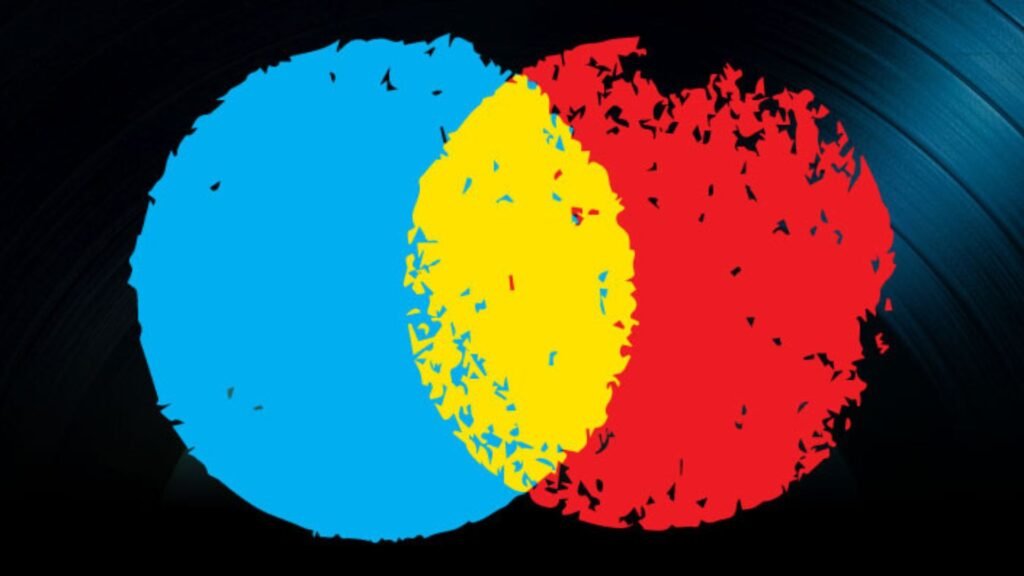The music industry is a multifaceted and complex business. It’s a world where creativity meets commerce, and both artists and labels must navigate a series of challenges to achieve success. From securing contracts and understanding royalties to developing marketing strategies, artists and record labels play distinct yet complementary roles in the industry. In this article, we’ll explore how both entities navigate the business of music and what it takes to thrive in today’s ever-evolving landscape.

The Role of Record Labels in the Music Business
Record labels have traditionally been the backbone of the music industry, offering resources, support, and distribution channels to artists. However, as technology and digital platforms have disrupted traditional music distribution, labels have had to adapt and adjust their roles.
- Artist Development: Labels are responsible for developing talent, providing guidance, and helping to shape an artist’s career. This can involve everything from songwriting and producing to branding and image management. A label’s influence can be the difference between a successful debut album and an artist struggling to break into the market.
- Distribution and Promotion: Labels often handle distribution, ensuring that music reaches audiences through physical copies, streaming platforms, and digital downloads. They also manage promotional efforts, securing radio airplay, playlist placements, and arranging interviews and performances.
- Marketing and Branding: Beyond the music itself, labels help artists build their brands. This includes defining their public image, coordinating media appearances, and managing social media. A strong brand can set an artist apart in an overcrowded market.
- Monetizing Music: Record labels also play a key role in monetizing an artist’s music. This includes negotiating licensing deals, selling music for commercials, films, and television, and organizing live tours and merchandise sales.
How Artists Navigate the Business of Music
While record labels provide essential support, artists also need to understand how to navigate the business side of their careers. Many musicians are now choosing to remain independent, which requires a deeper understanding of the business world.
- Building a Fan Base: The first step for any artist is to build a dedicated fan base. Social media platforms, streaming services, and live performances are key tools for engaging with audiences. Artists can use these platforms to share new music, offer behind-the-scenes content, and interact with their fans.
- Understanding Royalties and Revenue Streams: One of the most important aspects of the music business is understanding how artists earn money. Artists receive royalties for streams, downloads, physical sales, and licensing. Knowing how royalties work is crucial for artists, as this is often the primary source of income.
- Performance Royalties: These royalties are earned when an artist’s music is played on the radio, in live performances, or in public spaces.
- Mechanical Royalties: These are generated from the sale of physical copies of music or downloads.
- Sync Licensing Fees: Artists can earn money by licensing their music for use in films, TV shows, commercials, and video games.
- Self-Promotion and Branding: In today’s digital age, self-promotion is crucial for an artist’s success. Many artists use platforms like Instagram, TikTok, and YouTube to promote their music directly to their audience. Building a personal brand that resonates with listeners can help drive sales and build a loyal following.
- Negotiating Contracts: While many artists work with labels, a solid understanding of contracts is essential for ensuring fair compensation. This includes signing deals for album production, distribution, and royalties. Independent artists must learn to negotiate fair agreements with managers, booking agents, and collaborators.
The Digital Revolution and Its Impact
The rise of streaming services such as Spotify, Apple Music, and YouTube has revolutionized the music industry. This digital transformation has opened up new revenue streams, but it has also introduced new challenges.
- Streaming Services: While streaming has made music more accessible than ever, it has also caused a dramatic shift in how artists are compensated. Most streaming platforms pay artists a fraction of a cent per stream, making it difficult for musicians to earn significant revenue from streaming alone. This has led many artists to rely more heavily on live shows, merchandise, and licensing deals to generate income.
- Direct-to-Fan Sales: Independent artists can now sell music directly to their fans through platforms like Bandcamp and Patreon. These platforms allow artists to keep a larger percentage of the profits, bypassing the need for a record label or other middlemen.
- Crowdfunding and Patreon: Crowdfunding platforms like Kickstarter and Patreon have allowed artists to raise money directly from fans for new projects or ongoing support. These platforms provide a way for artists to build a more sustainable income and reduce their reliance on record labels.
Conclusion
Navigating the business of music is a dynamic and ongoing process for both artists and record labels. Artists must learn to balance creativity with the complexities of contracts, royalties, and marketing, while labels must adapt to new technologies and shifts in the market. The key to success in the music industry is understanding the business side, building strong relationships with industry professionals, and staying agile in the face of change. As the industry continues to evolve, the future of music business strategies will rely on both innovation and adaptability, ensuring that artists and labels continue to thrive in a fast-paced, ever-changing environment.







